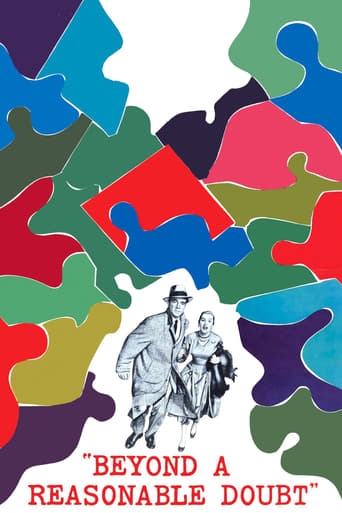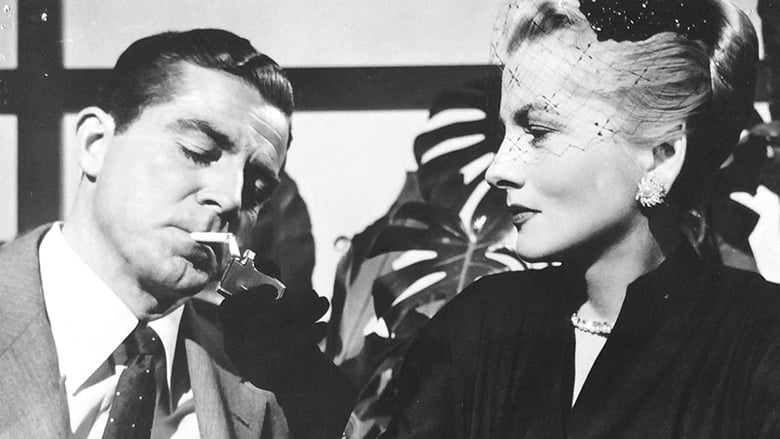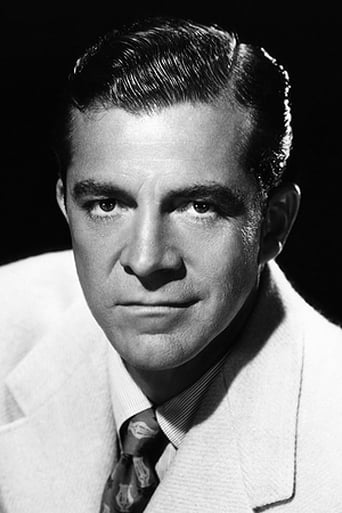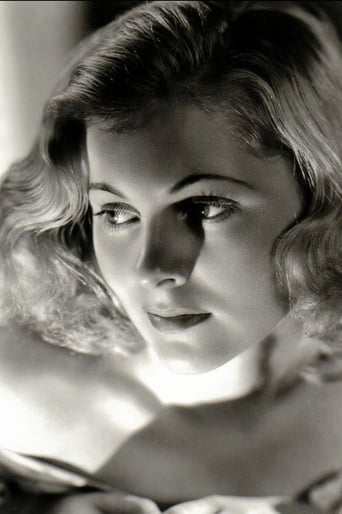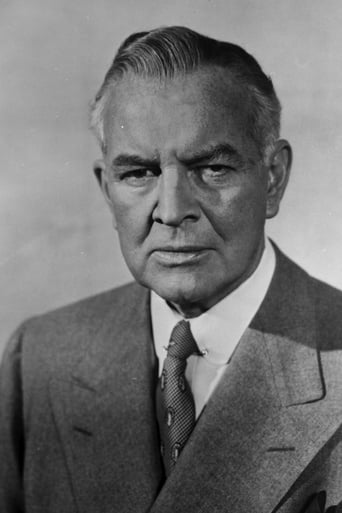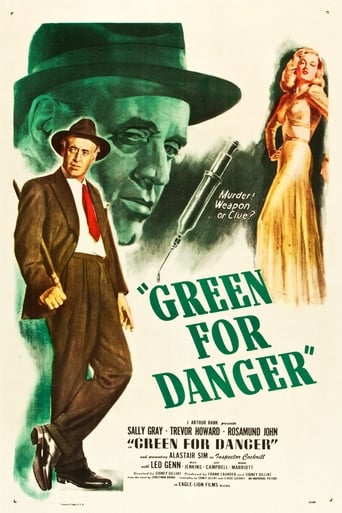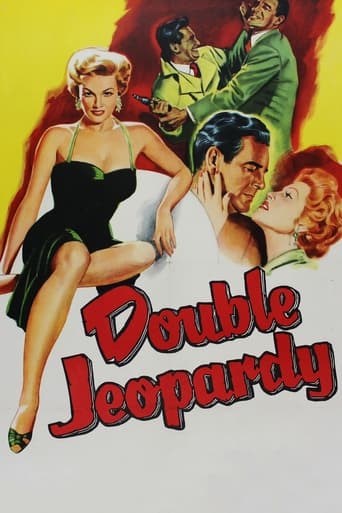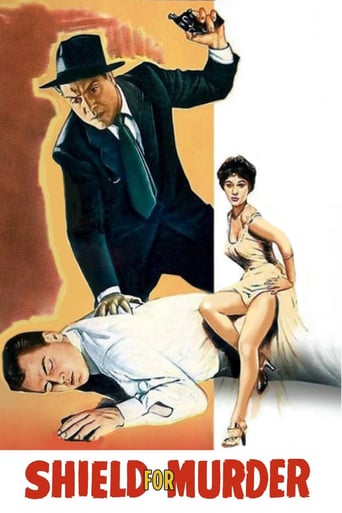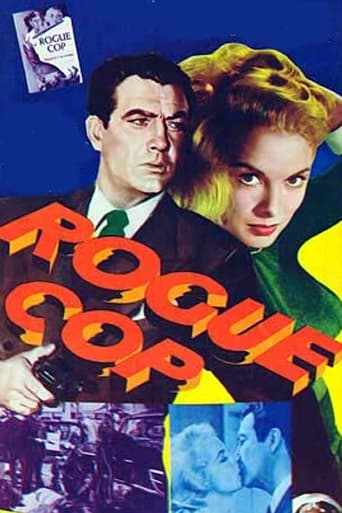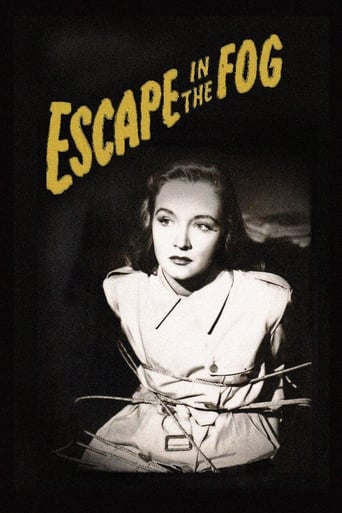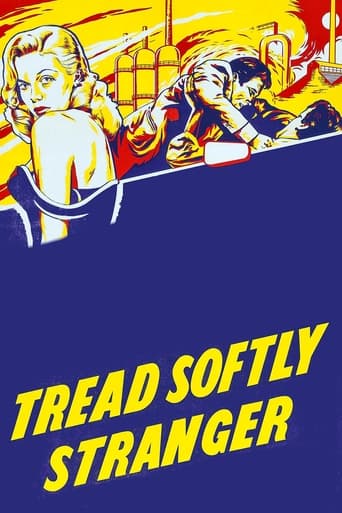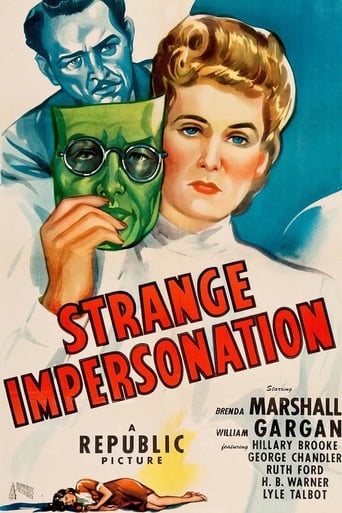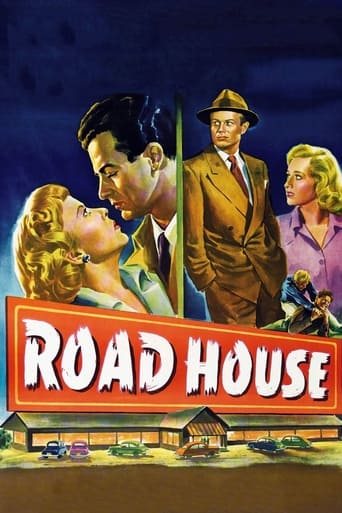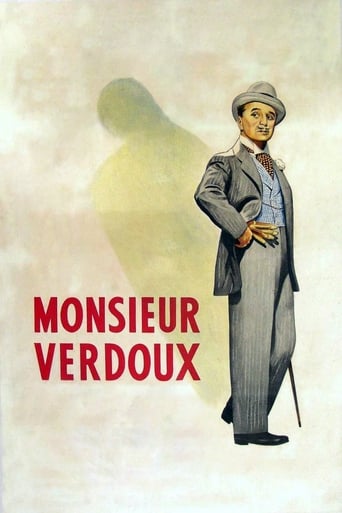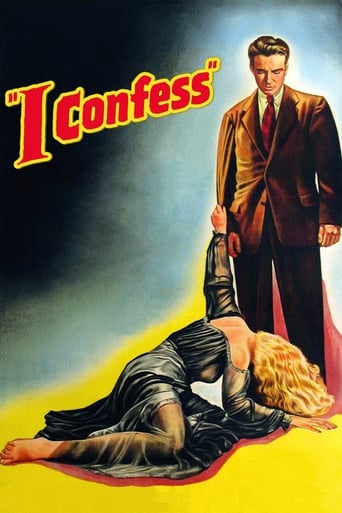Beyond a Reasonable Doubt (1956)
A newspaper publisher, wanting to prove a point about the insufficiency of circumstantial evidence, talks his possible son-in-law Tom into a hoax in an attempt to expose ineptitude of the city's hard-line district attorney. The plan is to have Tom plant clues leading to his arrest for killing a female nightclub dancer. Once Tom is found guilty, he is to reveal the setup and humiliate the DA.
Watch Trailer
Cast


Similar titles
Reviews
Entertaining from beginning to end, it maintains the spirit of the franchise while establishing it's own seal with a fun cast
There's no way I can possibly love it entirely but I just think its ridiculously bad, but enjoyable at the same time.
The acting in this movie is really good.
There are moments in this movie where the great movie it could've been peek out... They're fleeting, here, but they're worth savoring, and they happen often enough to make it worth your while.
Maybe not quite what it could have been, but recommended. This probably suffers most from what appears to be a low budget--and arguably a dearth of style from director Fritz Lang. But Lang could be quite flamboyant in other films, so perhaps the relatively straightforward style here is meant to suit the movie and its themes. And it's the story and themes that will have you talking afterwards: Though it's vaguely far-fetched and certainly contrived, this is quite the screenplay. I won't say anything other than the following: Dana Andrews plays Tom Garrett, a novelist who's persuaded by his newspaper mogul friend Austin Spencer (Sidney Blackmer) to pose as the suspect in a murder in order to prove the pitfalls of circumstantial evidence and politics in death penalty cases. Andrews eventually gets in over his head, and... well, see for yourself. Mildly underwhelming in route, "Beyond a Reasonable Doubt" nonetheless gathers a pretty good head of steam by its surprising climax. Dana Andrews gives a typically solid performance; if that sounds like slight praise, I don't mean it like that; he's a personal favorite of mine, especially for the work he did in noirs, and he seems today rather sadly under-appreciated, if not largely forgotten. Joan Fontaine is also on hand here as Susan Spencer, Garrett's fiancé and Austin's daughter. Overall, somewhat disappointing on the level of production, but otherwise very much worth a look for classic film fans.
Imagine an innocent man convicted for a crime he did not commit, being tried and found guilty. The laws of that particular state demand a sentence of death on the electric chair. After meeting the fate ordered by the verdict, the man goes to his death and when all is done, new evidence shows someone else was the real culprit. Is that justice?That is the point of Austin Spencer, a newspaper publisher, completely opposed to the death penalty. His own future son-in-law, Tom Garrett, a novelist, could not agree with him much more. Spencer wants to build a fake case with the help of Tom, in which a horrible crime in the news is brought to the attention of the police and the District Attorney. For that, Tom Garrett chooses the case of a burlesque dancer that was found dead and the case proves to be a mystery for the law enforcement people. Tom will act the part of the elusive man sought by the police as the killer.Austin and Tom fabricate a story that follows closely the real murder. Austin wants to document the way they prepared the fake case. Tom, reluctantly agrees to go along and pose as the assassin. His own wedding to Austin's daughter, the lovely Susan Spencer, might be in jeopardy. If Tom is condemned to die on the electric chair, Austin will have all the evidence to render the case for capital punishment for Tom a mockery of the system.Fritz Lang directed this RKO 1956 film. The director had a vivid imagination; evidently he was intrigued by the application of justice in his adoptive country, as shown in the magnificent "Fury" of his early Hollywood career. The screenplay by Douglas Morrow offers a satisfying courtroom drama with an ironic twist most viewers do not expect.Dana Andrews is at the center of the picture as Tom Garrett, a successful novelist in his own right, much in love with Susan Spencer. Mr. Andrews was an actor that delivered, as is the case here, although his style was a terse approach to his characters. Sidney Blackmer, a veteran actor himself, is also at his best with his take of the publisher with a conscience that wants to see the death penalty abolished in his lifetime. Joan Fontaine appears as Susan Spencer. Her role could be seen as supporting, because she is relegated to just adorn the film with only a few important scenes to her credit.The supporting roles are more interesting in the film. Barbara Nichols is perfect as the burlesque girl at the center of Austin Spencer's plans. Bob Hale, Shepperd Strudwick, Phillip Bourneuf, Ed Binns, and Joyce Taylor, among the large cast do a wonderful job in the film.Highly recommended for all Fritz Lang's fans.
Sometimes, in the world of 1940s-1950s film noir, we are given a film so transparently impossible and contrived that we can see ourselves giving up on watching it half way through. But is extremely rare that we are faced with a film where the very response the viewer is having holds the key to the success, rather than the failure, of the film.Such is the case with BEYOND A REASONABLE DOUBT, which has - to its credit - been completely misunderstood by many. When we reach the film's conclusion, we realize that even the title of the film itself is a joke, perhaps the ultimate prank on the viewer. Yet to offer analysis of the film would be to destroy its main and most sinister motive; you can't "explain away" the glaring plot holes and contrivances without revealing the twist the film takes in its climax, and to do would rob the viewer of a genuine experience. So... I won't.Suffice it to say, BEYOND A REASONABLE DOUBT is far more than it seems and is nothing without the sum of its parts, in total. Lang tackles the story of a person who creates a fictitious role for himself in order to, essentially, pull a fast one on the legal profession for personal gain (or, as it appears on the surface, someone else's). In the world of film noir, of course, we know that such a character won't get away with it, but when Lang depicts the tragedy the viewer knows will come, he majestically turns the entire premise on its head. As a result, it's a cold slap in the face - a devastating critique of the complicity of the audience in following along, hungrily, with such contrivances in cinema.Every part of the film fits perfectly by not fitting at all. Even the visual style of the film is a cold, rarely pleasing one, almost daring you to suspend your disbelief just a little bit longer without even granting the pleasure of emotionally charged close-ups at key moments. The editing is brutal and jarring, cutting away practically mid-sentence and moving to a similar conversation elsewhere.As a swan song to his Hollywood career, BEYOND A REASONABLE DOUBT does to the audience what Billy Wilder does to the industry in SUNSET BLVD. - biting the hand that feeds. The result is a total masterpiece.
Fritz Lang's last film in America saw him reunited with some of the people with whom he had made WHILE THE CITY SLEEPS, and while the budget is still clearly poverty row, once again he comes up with a terrific commentary on the ills at the heart of fifties America. This time, it's the death penalty that forms the centrepiece of the film - or it seems to be, since that's the plot motor. But look closer, and you'll find it's actually about two of Lang's most familiar subjects: guilt and hypocrisy. Almost everyone in the film lives a double life, most obviously Dana Andrews' writer, but even Joan Fontaine's deeply frustrated spinster, who really can't wait to marry Andrews, and whose horror, when she discovers his double life is palpable. Lang floats above his subject matter elegantly, occasionally dipping his toe into the sleaze (a wonderful scene towards the end with a Miami strip-joint owner), getting terrific performances and indicting an entire society.

